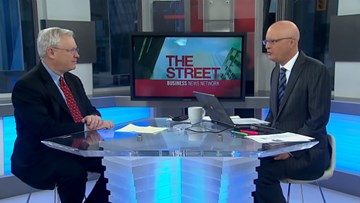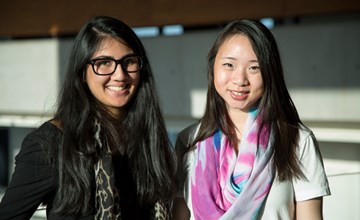Ivey PhD and post-doctoral students in the healthcare field now have the opportunity to combine research and industry experience thanks to a Sun Life and MITACS Accelerate grant.
The funds allow Ivey Professor Michael Rouse and his team to create internships at the PhD and post-doctoral levels as part of a broader multi-year health and wellness study to better understand the value of workplace wellness programs across Canada. The funding provides Rouse, and fellow Professors Charlice Hurst and Greg Zaric, along with Sisira Sarma of Schulich Medical School and Shauna Burke from the School of Health Studies, Western University, the opportunity to dig into specific areas of interest that will feed into the Sun Life-Ivey Canadian Wellness Return on Investment (ROI) Study.
The new phase also provides opportunity for a series of White Papers on various topics related to the Wellness study.
Related to this story
“There is tremendous opportunity here, not only to deepen the scope of the ROI Study through discreet projects, but also to provide real-world experience to our PhD students and post-doctoral fellows,” said Rouse. “It’s a tremendous privilege for our team to be part of this well-funded project. In addition to the academic output there will also be a series of White Papers based on the study that will be extremely beneficial to business.”
PhD Candidate Ellen Choi is looking at the effects of workplace mindfulness in a study she is carrying out with the University Health Network, a medical centre comprised of four Toronto hospitals including Toronto General and Princess Margaret Cancer Centre. Mindfulness is attracting attention within organizations and among researchers for its ability to enhance employee performance by sustaining attention to the present moment. The program is part of workplace wellness programs in such high-profile organizations as Google, Proctor & Gamble and Starbucks.
Choi’s research studies the efficacy of a mindfulness program to impact the psychology of errors committed at the individual level so that errors can be turned into learning opportunities. Managers recruited at the Health Network will be randomly assigned to one of three groups: an experimental group that learns meditation techniques, an active control group that practices Pilates, or a group that does nothing. Choi’s research is one example of the eight to 10 programs that can be running at once through the Mitacs/Sun Life grant.
Begun in 2011, the Sun Life-Ivey Canadian Wellness Return on Investment (ROI) Study looks to establish Canadian benchmarks on the ROI for workplace wellness programs.
Phase One – a review of Canadian and global literature to see if a ROI could be determined for companies investing in wellness programs – showed that:
- Wellness programs save about 1.5 to 1.7 days in absenteeism per worker over 12 months, which means a reduction in absenteeism of 14-36 per cent, and a savings of an estimated $251 per employee per year.
The second phase is a three-year study comparing Canadian companies with wellness programs to those that don’t have such programs.



